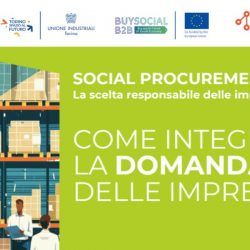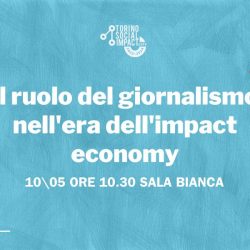The EU has published an update of the EU Industrial Strategy, with the aim of driving the transition to a more sustainable, digital, resilient and globally competitive economy.
So far, 14 industrial ecosystems across the EU have been identified on the basis of their economic and technological relevance, and for their expected contribution to the decarbonisation, digitisation and resilience of the European economy. Social economy is one of them.
The relevance of the social economy benefits from the international work of Torino Social Impact, through its spokesperson Mario Calderini, who was heard last October by European Commissioners Thierry Breton (Internal Market) and Nicolas Schmit (Labour and Social Rights) on the new PAct for Skill and the Social Economy Action Plan.
Last February, Professor Calderini also participated in the workshop of the EU Science, Research and Innovation in Seville Ecosyste for high growth enterprises, with a study on “A New Entrepreneurial Genre for High Potential Inclusive Growth”.
Popular
 “Metrics of social impact in… 1 August 2024
“Metrics of social impact in… 1 August 2024  Turin is the 2024 European Capital of Innovation (iCapital) 14 November 2024
Turin is the 2024 European Capital of Innovation (iCapital) 14 November 2024  “Foundations and Principles of Solutions… 27 May 2024
“Foundations and Principles of Solutions… 27 May 2024  Webinar “Fundamentals and principles of… 17 May 2024
Webinar “Fundamentals and principles of… 17 May 2024  Social Procurement, the Responsible Choice for… 24 May 2024
Social Procurement, the Responsible Choice for… 24 May 2024  Salone del Libro 2024: Guests of the Event… 24 April 2024
Salone del Libro 2024: Guests of the Event… 24 April 2024 

